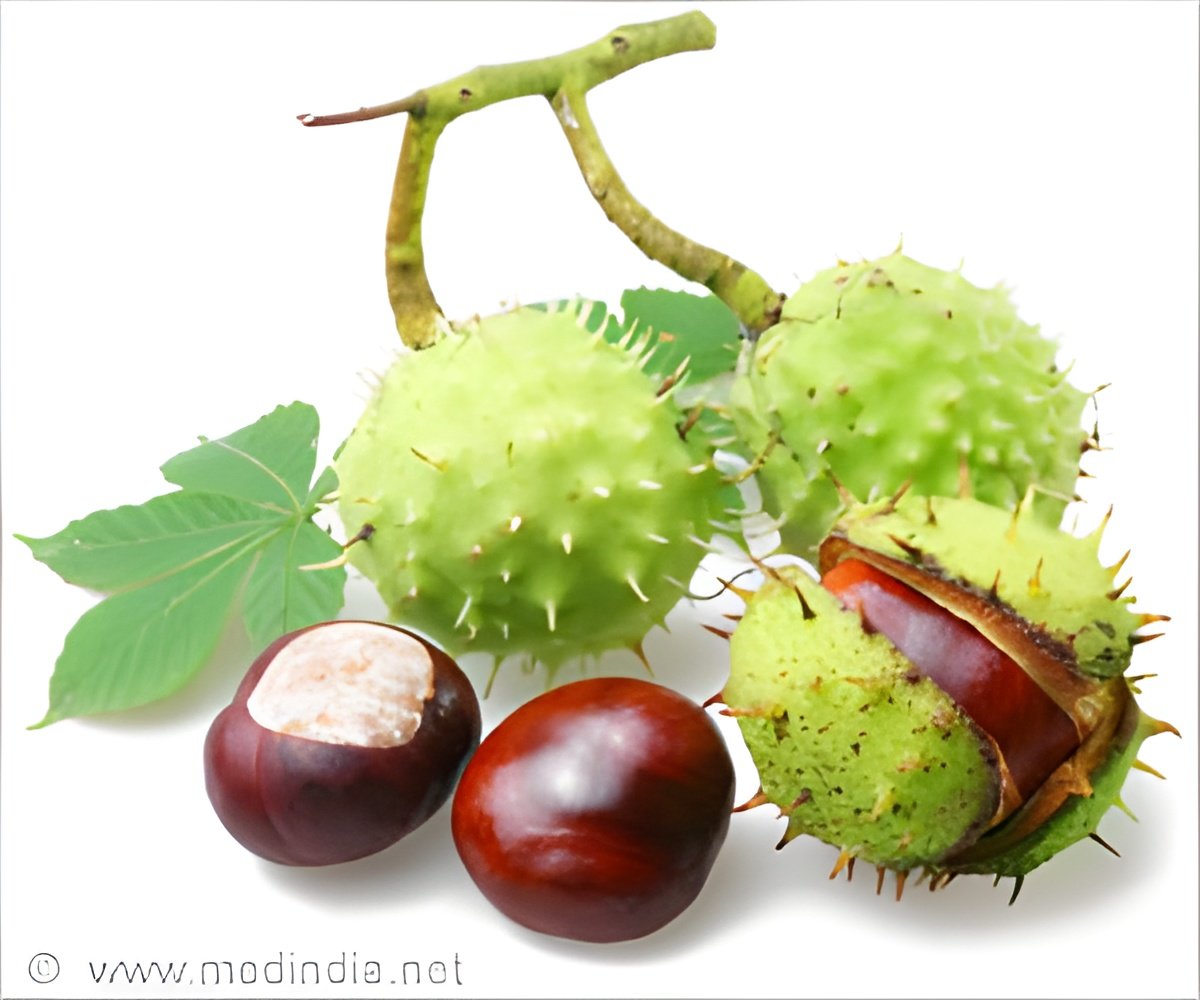Water chestnut (Singhada) isn’t just for fasting! This nutrient-rich superfood supports immunity, heart health, weight loss, and even glowing skin.

- Singhada (water chestnut) is a nutrient powerhouse that boosts immunity and helps manage diabetes and hypertension
- Rich in antioxidants and potassium, singhada supports heart health, weight loss, and skin wellness
- Singhada flour and oil offer gluten-free nutrition and holistic benefits for hair, skin, and overall health
Some healthy foods are commonly overlooked, despite their importance. One such wonder is singhada, often known as water chestnut. While singhada is commonly associated with Navratri and fasting periods in many cultures, it has an astounding list of health advantages that go far beyond its traditional culinary applications. Let’s look deeper into this plant’s nutritional miracles, including its numerous health benefits.
Advertisement
What is Singhada or Water Chestnut?
Singhada, sometimes known as water chestnut, is an aquatic plant native to Southeast Asia that is commonly grown in marshy or swampy areas (1). The edible element of singhada is the nut-like tuber, which grows underwater and is collected in the autumn.
Advertisement
What are the Health Benefits of Water Chestnut (Singhada)?
Boosts Immunity
Water chestnuts, also known as singhada, are high in vitamin C, a potent antioxidant that protects the body by neutralizing free radicals (2). The health benefits of singhada include support for the immune system, which is our body’s defense against infections and illnesses. Consuming vitamin C-rich singhada can help boost our immune systems and keep us healthy.
Relieves Hypertension
Potassium, an essential mineral present in abundance in water chestnuts, is important for controlling and regulating blood pressure (3). It may lower the risk of hypertension and other cardiovascular problems by lowering sodium’s effects in the body.
Controls Diabetes and Non-alcoholic Fatty Liver Disease
Water chestnuts could be used to build a successful therapeutic medicine or functional food for type 2 diabetes and its associated problems, including non-alcoholic fatty liver disease (NAFLD) (4).
Promotes Weight Loss
Singhada can contribute to weight loss as part of a balanced diet for a variety of reasons. It is low in calories and fat, but high in fiber, which aids in the regulation of hunger, cravings, and overeating. Furthermore, it is high in nutrients, and the water chestnut water content improves hydration, which is essential for enhancing metabolism.
Improves Heart Health
There are numerous benefits of singhada for heart health. It is low in fat and cholesterol (5), making a significant contribution to cardiovascular health. Its potassium concentration is critical for blood pressure regulation, while the antioxidants counteract stress and inflammation, both of which are important in the prevention of cardiovascular disease.
Enhances Skin Health
Water chestnut, which is high in antioxidants, provides hydration and protection against free radicals, preventing premature aging and preserving skin elasticity (6). Its vitamin E content improves skin health. Incorporating Singhada into your diet enhances your skincare routine and promotes total skin wellness.
Advertisement
How to Incorporate Water Chestnut (Shingada) in the Diet?
Singhada is a common ingredient in various cuisines. Its crunchy texture and moderately sweet flavor make it a favorite component in many cuisines. However, water chestnut’s promise extends far beyond its culinary role. Here are some of the less well-known uses and benefits of singhada.
Singhada ka Atta:
In addition to being eaten raw, Singhada can be processed into flour, which is known as Singhada atta or water chestnut flour. In addition to its other benefits, singhara atta is gluten-free, making it a popular choice for people who have gluten sensitivities or celiac disease.
Singhada Oil:
Singhada is healthy for both the skin and the hair. It contains important vitamins and minerals that stimulate hair development and fortify hair follicles. Water chestnut oil is commonly used in hair care products to nourish the scalp, alleviate dandruff, and promote overall hair health.
Natural Medicines:
Singhada is not only delicious, but it also contains several nutrients and has medical benefits. It is high in antioxidants, vitamins, and minerals, and is said to help digestion, heart health, and immunity. Furthermore, its anti-inflammatory effects make it useful for illnesses such as arthritis and inflammation.
References:
- Trapa Natans (Water Chestnut): An Overview
(Chaudhary, Jasmine & Jain, Akash & Bhatiwal, Shalabh. (2012). Trapa Natans (Water Chestnut): An Overview. International Research Journal of Pharmacy. 3. ) - Anti-Inflammatory Effects of Water Chestnut Extract on Cytokine Responses via Nuclear Factor-κB-signaling Pathway
(Kim B, Kim JE, Choi BK, Kim HS. Anti-Inflammatory Effects of Water Chestnut Extract on Cytokine Responses via Nuclear Factor-κB-signaling Pathway. Biomol Ther (Seoul). 2015 Jan;23(1):90-7. doi: 10.4062/biomolther.2014.080. Epub 2015 Jan 1. PMID: 25593649; PMCID: PMC4286755.) - Antitumor, antioxidant, and nitrite scavenging effects of Chinese water chestnut (Eleocharis dulcis) peel flavonoids
(Zhan G, Pan L, Tu K, Jiao S. Antitumor, antioxidant, and nitrite scavenging effects of Chinese water chestnut (Eleocharis dulcis) peel flavonoids. J Food Sci. 2016;81:H2578–86. doi: 10.1111/1750-3841.13434.) - Evaluation of Dose-Dependent Obesity and Diabetes-Related Complications of Water Chestnut (Fruit of Trapa japonica) Extracts in Type II Obese Diabetic Mice Induced by 45% Kcal High-Fat Diet
(Kang HG, Bashir KMI, Kim KY, Shin S, Choi MW, Hong EJ, Choi SH, Kim JW, Choi JS, Ku SK. Evaluation of Dose-Dependent Obesity and Diabetes-Related Complications of Water Chestnut (Fruit of Trapa japonica) Extracts in Type II Obese Diabetic Mice Induced by 45% Kcal High-Fat Diet. Medicina (Kaunas). 2022 Jan 26;58(2):189. doi: 10.3390/medicina58020189. PMID: 35208513; PMCID: PMC8880371.) - Dietary Supplementation with Chestnut (Castanea sativa) Reduces Abdominal Adiposity in FVB/n Mice: A Preliminary Study
(Rodrigues P, Ferreira T, Nascimento-Gonçalves E, Seixas F, Gil da Costa RM, Martins T, Neuparth MJ, Pires MJ, Lanzarin G, Félix L, Venâncio C, Ferreira ICFR, Bastos MMSM, Medeiros R, Gaivão I, Rosa E, Oliveira PA. Dietary Supplementation with Chestnut (Castanea sativa) Reduces Abdominal Adiposity in FVB/n Mice: A Preliminary Study. Biomedicines. 2020 Apr 4;8(4):75. doi: 10.3390/biomedicines8040075. PMID: 32260459; PMCID: PMC7235886.) - Skin-related enzyme inhibitory activity by hydrolyzable polyphenols in water chestnut (Trapa natans) husk
(Yasuda M, Ikeoka M, Kondo SI. Skin-related enzyme inhibitory activity by hydrolyzable polyphenols in water chestnut (Trapa natans) husk. Biosci Biotechnol Biochem. 2021 Feb 24;85(3):666-674. doi: 10.1093/bbb/zbaa076. PMID: 33590040.)
Source-Medindia



